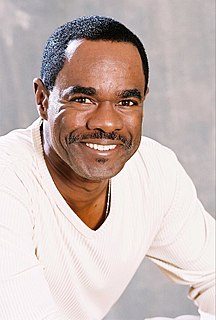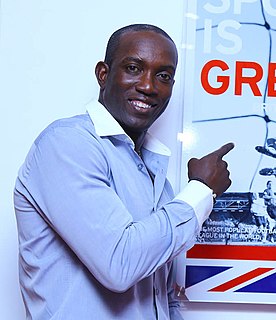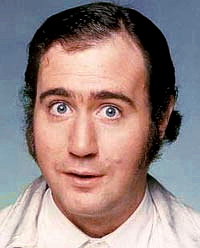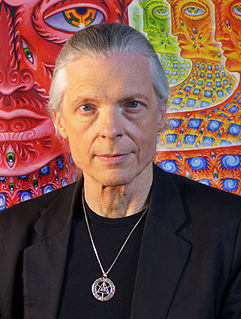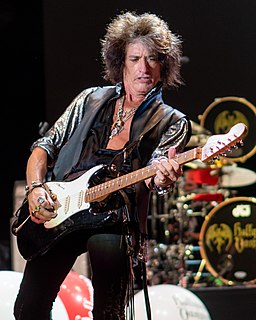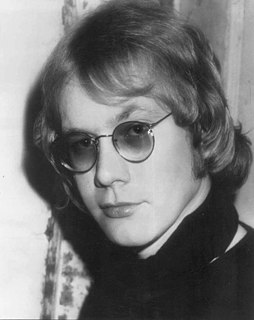Top 1200 Stage Managers Quotes & Sayings - Page 2
Explore popular Stage Managers quotes.
Last updated on April 19, 2025.
There is no definitive list of the duties of a stage manager that is applicable to all theaters and staging environments. Regardless of specific duties, however, the stage manager is the individual who accepts responsibility for the smooth running of rehearsals and performances, on stage and backstage.
Normally classical music is set up so you have professionals on a stage and a bunch of audience - it's us versus them. You spend your entire time as an audience member looking at the back of the conductor so you're already aware of a certain kind of hierarchy when you are there: there are people who can do it, who are on stage, and you aren't on stage so you can't do it. There's also a conductor who is telling the people who are onstage exactly what to do and when to do it and so you know that person is more important than the people on stage.
That's the thing about stage: It's something you can't find anywhere else. It's a two-and-a-half, three-hour experience, and it's a real relationship. You're sending out energy from the stage, but the audience is giving you back so much also, so that's also lifting you and pushing you forward as you're performing and giving you so much energy. You can't find it anywhere else, and that's why people get addicted to being on stage, and when they're not on stage are kind of looking for that and constantly searching for it.
You see, what is my purpose of performance artist is to stage certain difficulties and stage the fear the primordial fear of pain, of dying, all of which we have in our lives, and then stage them in front of audience and go through them and tell the audience, I'm your mirror; if I can do this in my life, you can do it in yours.
Managers used to say, 'I have a gut feeling.' Do you know what a gut feeling is for a professional manager? It's a pattern that they recognize. But if your system can recognize that pattern, if it's not just a couple of managers who know that pattern, then the system's gut feeling can tell you which way to go. That's really liberating.
You see, what is my purpose of performance artist is to stage certain difficulties and stage the fear the primordial fear of pain, of dying, all of which we have in our lives, and then stage them in front of audience and go through them and tell the audience, 'I'm your mirror; if I can do this in my life, you can do it in yours.'
When you go through a tunnel - you're going on a train - you go through a tunnel, the tunnel is dark, but you're still going forward. Just remember that. But if you're not going to get up on stage for one night because you're discouraged or something, then the train is going to stop. Everytime you get up on stage, if it's a long tunnel, it's going to take a lot of times of going on stage before things get bright again. You keep going on stage, you go forward. EVERY night you go on stage.
Managers are already voracious consumers of theory. Every time they make a decision or take action, it's based on some theory that leads them to believe that action will lead to the right result. The problem is, most managers aren't aware of the theories they're using, and they often use the wrong theories for the situation.
The important word there is inspire. The key difference between managers and leaders is that managers tell people what to do, while leaders inspire them to do it. Inspiration comes from three things: clarity of one's vision, courage of their conviction and the ability to effectively communicate both of those things.
Insecure managers create complexity. Frightened, nervous managers use thick convoluted planning books and busy slides filled with everything they’ve known since childhood……. They worry that if they’re simple, people will think they’re simple minded. In reality, of course, it’s just the reverse. Clear, tough minded people are the most simple.
According to most philosophers, God in making the world enslaved it. According to Christianity, in making it, He set it free. God had written, not so much a poem, but rather a play; a play he had planned as perfect, but which had necessarily been left to human actors and stage-managers, who had since made a great mess of it.
Congress has all sorts of rules, hedge fund managers, private equity managers, executives, movie stars, fall into that allow them to escape or defer into the future not paying their taxes. And if you can defer your tax into the future, it's the best deal in the world, because you don't just get to eat your cake and have it too. You get to eat your cake and have a bigger cake.
Steven and I stood on the stage at the Boston Garden after the Stones had just played there and the stage was still up. We had been playing cards, maybe a high-school dance, to 400 or 500, maybe a thousand. We just stood on the stage and thought, 'Well,man,maybe someday.' In 4 years that was OUR stage.
You can't make theater happen without actors. The actor is the central ingredient in making theater happen. Audiences may come to theaters to see the work of stage managers, directors and producers, but the only people who can communicate theater magic to audiences, through ideas and emotions, are the actors. They are the only ones who can communicate this by themselves, and if necessary, they can get along without you. But you can't make theater without the actor.
Managers are not confronted with problems that are independent of each other, but with dynamic situations that consist of complex systems of changing problems that interact with each other. I call such situations messes. Problems are extracted from messes by analysis. Managers do not solve problems, they manage messes.
Give serious thought to why your company should care about your strategy. Specifically, find problems that the board wants to be solved. What are senior managers scared of? Part of becoming a credible strategic thinker is learning effective approaches to selling ideas for your situation. You’ll know that you’re getting better at selling (or pitching) strategy when managers start coming to you when there is strategic thinking to be done.
I'm not an angry person, just very disappointed and contemptuous of my fellow humans' choices - and on stage those feelings sometimes are exaggerated for a theatric stage - you're on a stage you have an audience of 2500 or 3000 people: you need to project the feelings, the emotions it's heightened, and people mistake it for a personal anger but it's more dissatisfaction, disappointment and contempt for these things we've settled for.
My whole life at a certain point was studio, hotel, stage, hotel, stage, studio, stage, hotel, studio, stage. I was expressing everything from my past, everything that I had experienced prior to that studio stage time, and it was like you have to go back to the well, in order to give someone something to drink. I felt like a cistern, dried up and like there was nothing more. And it was so beautiful.
One might think of investment managers as astronomers and CEOs as astronauts. The two roles are radically different with distinct personality traits. Like astronomers, investment managers tend to be introverted, skeptical, and very analytical. CEOs, like astronauts, are the exact opposite, typically being extroverts, optimists, and, well, leaders.
Self-dealing, essentially, occurs when managers run companies to line their own pockets instead of those of the companies' owners. It's been a perennial problem in American capitalism and became a real dilemma when America moved toward a model in which corporations would be run by professional managers who had only small ownership stakes.
And from the first moment that I ever walked on stage in front of a darkened auditorium with a couple of hundred people sitting there, I was never afraid, I was never fearful, I didn't suffer from stage fright, because I felt so safe on that stage. I wasn't Patrick Stewart, I wasn't in the environment that frightened me, I was pretending to be someone else, and I liked the other people I pretended to be. So I felt nothing but security for being on stage. And I think that's what drew me to this strange job of playing make-believe.
There is what Steve Blank calls the stage where you are searching for a scalable business model. Then, there is the stage when you have found that model and need to scale it. In the former stage you have to have a "beginner's mind," be in learning mode, and expect to learn things you didn't anticipate.




